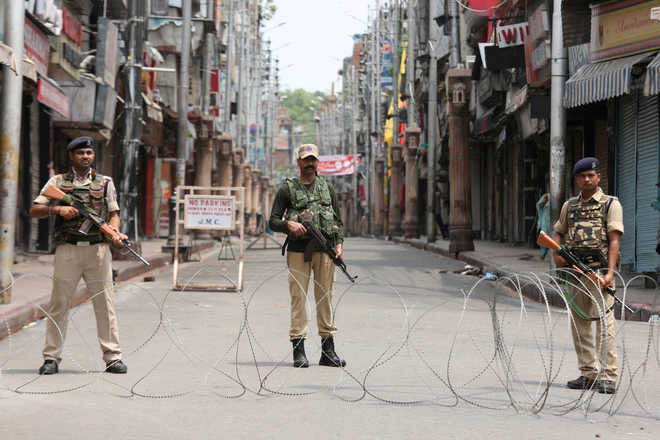Abrogation of Article 370, implementation of the uniform civil code and building a Ram temple at Ayodhya have been the cornerstones of the BJP’s political programme and prime promises in its poll manifesto over many decades. Of these, abrogation of Article 370 of the Constitution that gives a special status to the state of Jammu and Kashmir has been the oldest ideological argument of the RSS and its political offshoots, the Jan Sangh and the BJP. Jan Sangh founder Syama Prasad Mookerjee had quit Jawaharlal Nehru’s Cabinet in 1950 primarily over this issue. This special status was offered at a time when most princely states, which had acceded to the Indian Union, still hung on to old practices, hierarchies and bureaucracies; when former rulers were termed Raj Pramukhs and their coats of arms and flags were in vogue. Sheikh Abdullah wanted this status to convince and reassure his people to join a Hindu-majority nation and Nehru offered it to enhance the prestige of a multicultural, diverse India and to defeat Jinnah’s identity politics.
Now, after seven decades, J&K loses its special status and gets reorganised into two union territories: one for Ladakh and the other for the divisions of Jammu and Kashmir. This doesn’t come as a surprise because the RSS had passed a resolution in 2002 seeking the trifurcation of J&K into three administrative units comprising Jammu, Kashmir and Ladakh. It cannot be a coincidence that the Centre has moved the resolution to abolish Article 370 in the Rajya Sabha on Monday, soon after criminalising triple talaq — a step in the direction of a uniform civil code. So, of the core issues of the Sangh Parivar, only the Ram temple is now left on the table.
The BJP can claim that it is merely fulfilling its election mandate; the promises it has made to its voters all these years and particularly during the highly polarising General Election, which concluded less than three months ago. But has the government thought it through? Has it factored in all the international ramifications, the UN resolutions and the neighbourhood’s response? The government, at home, could have acted with a lot more transparency in Delhi and in the Valley.

